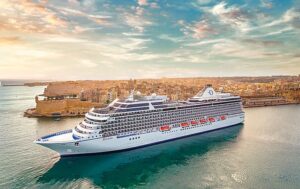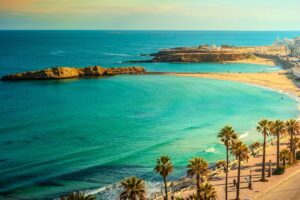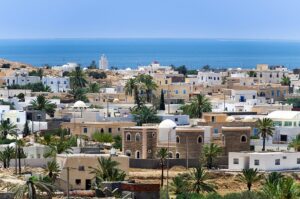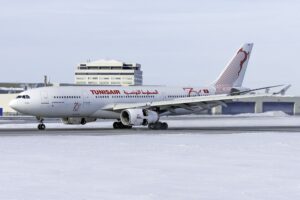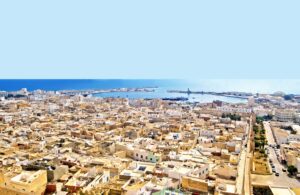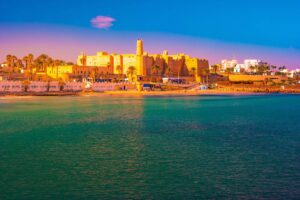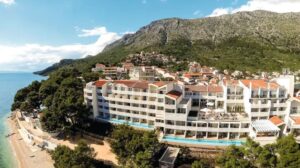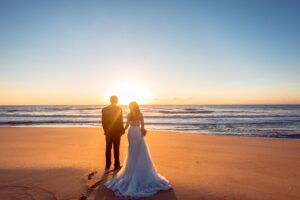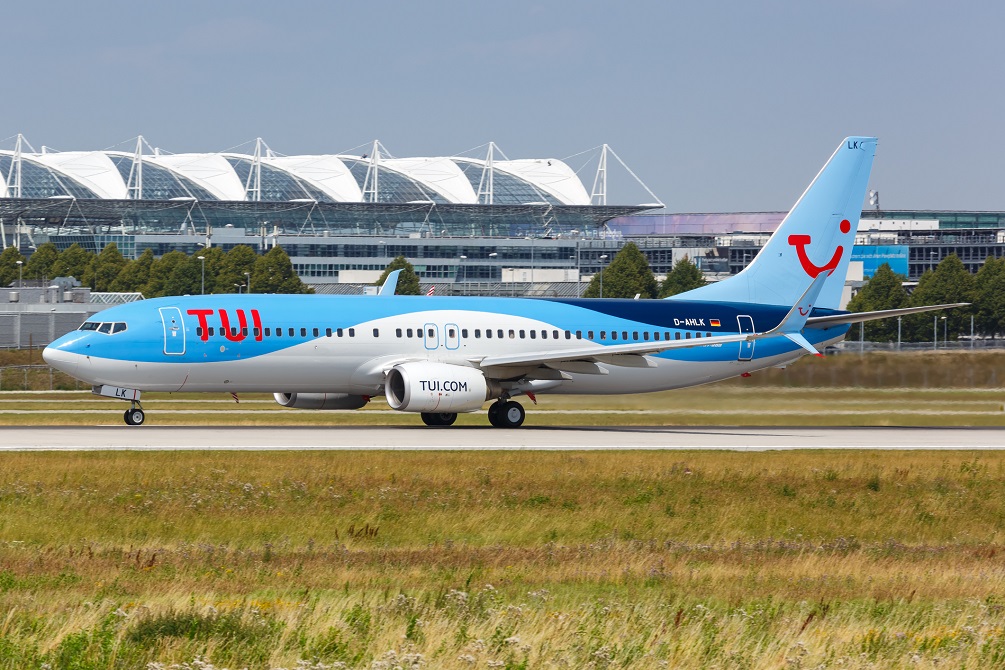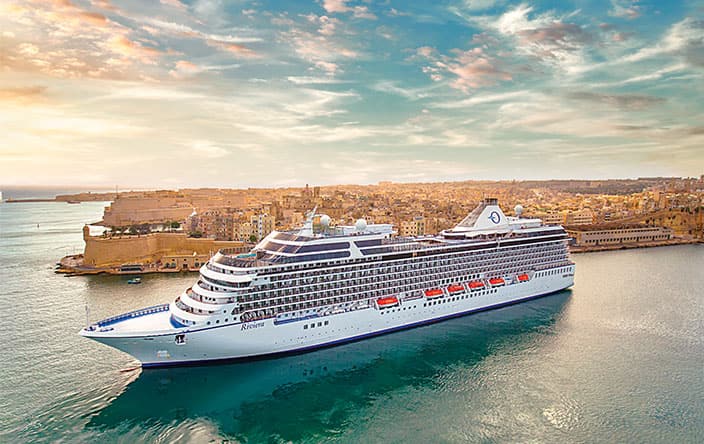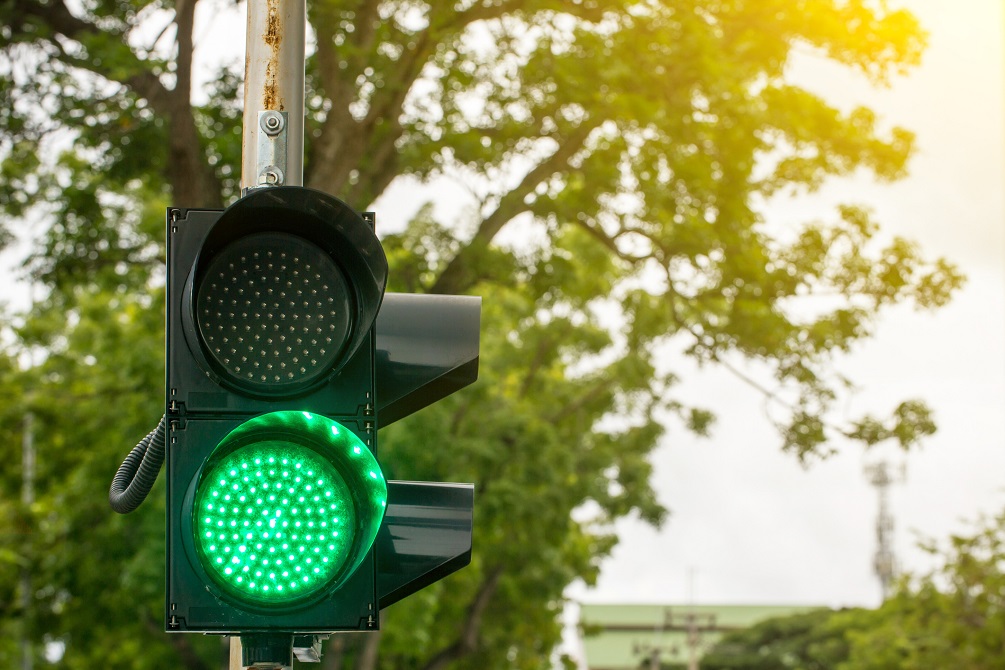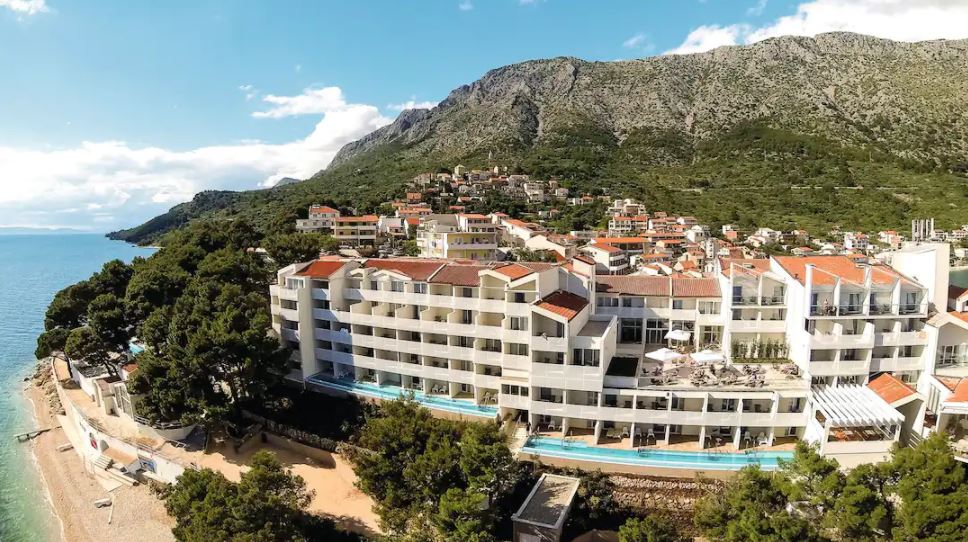Tunisia
From Roman ruins to desert safaris and dreamy beaches, Tunisia knows how to turn on the charm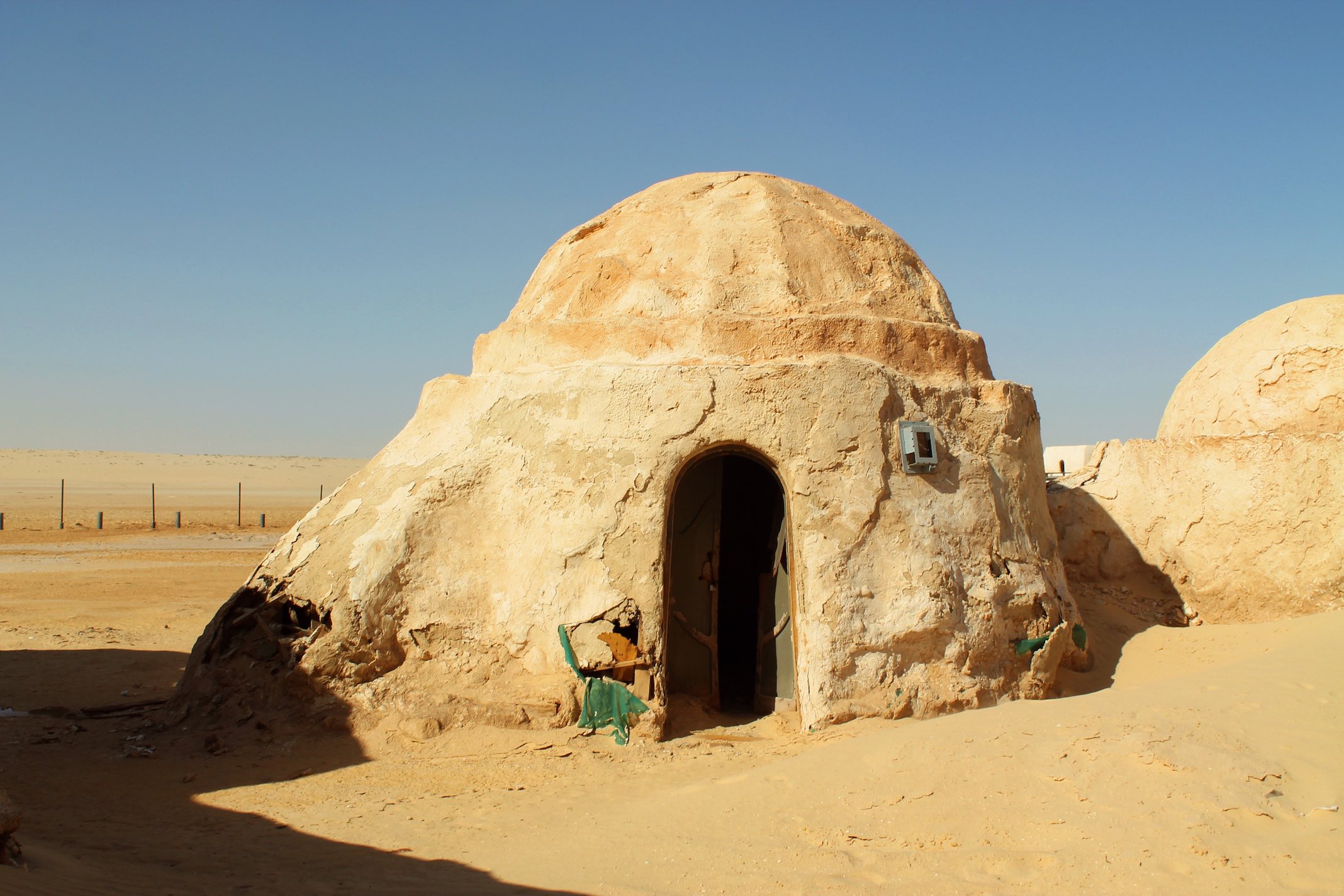
Located in the northernmost part of the African continent, Tunisia is bound by Algeria to its west, Libya to its southeast and the Mediterranean Sea to its north and northeast. It’s striking how close Tunisia is to the southern borders of Italy and Malta, which makes you think afresh about the proximity of Europe to North Africa and the cultural, economic and political links between the two continents dating back several millennia. For its size, Tunisia has a wide variety of landscapes. Besides the famous coastline, there are mountains in the north, the Sahara Desert with its sand dunes towards the south and the rocky plains in the centre which tend to be hot and dry.
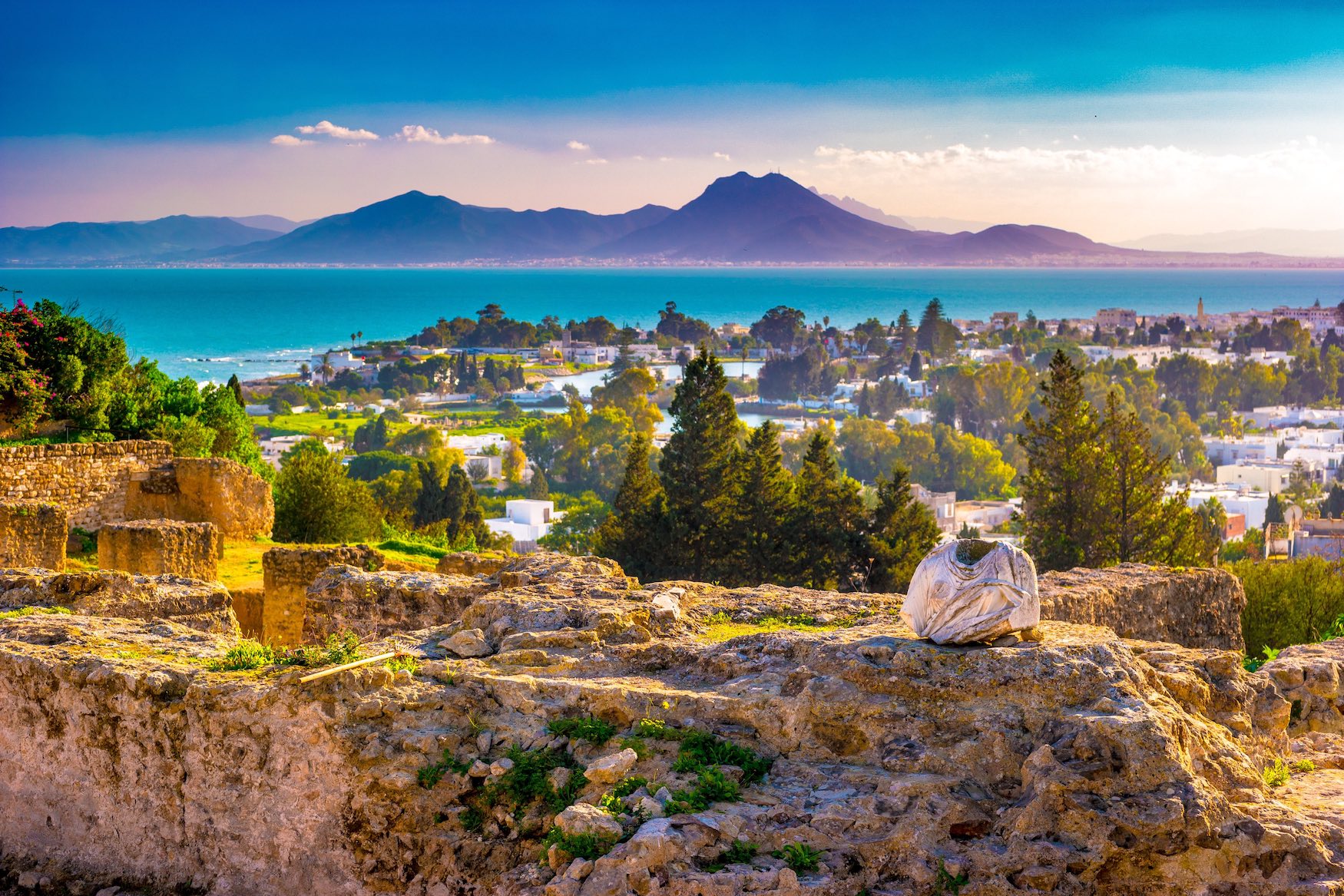


Given its location, it’s not surprising that Tunisia has a Mediterranean climate — mild, wet winters and hot, dry summers. The south and central parts are hotter and rainfall is scanty. Wherever you are in Tunisia, you can soak in the sunshine and that includes the famed winter Mediterranean sun on the beach. The average winter temperature hovers around 17 degrees Celsius but summers on the coast are not too bad either. Sun-crazy tourists tend to flock to Tunisia’s beaches in the July-August period. Even on warmer days in the coastal towns, you can enjoy a cool sea breeze in the evenings. If you’re here for a desert safari, aim for the September-November and March-May months.
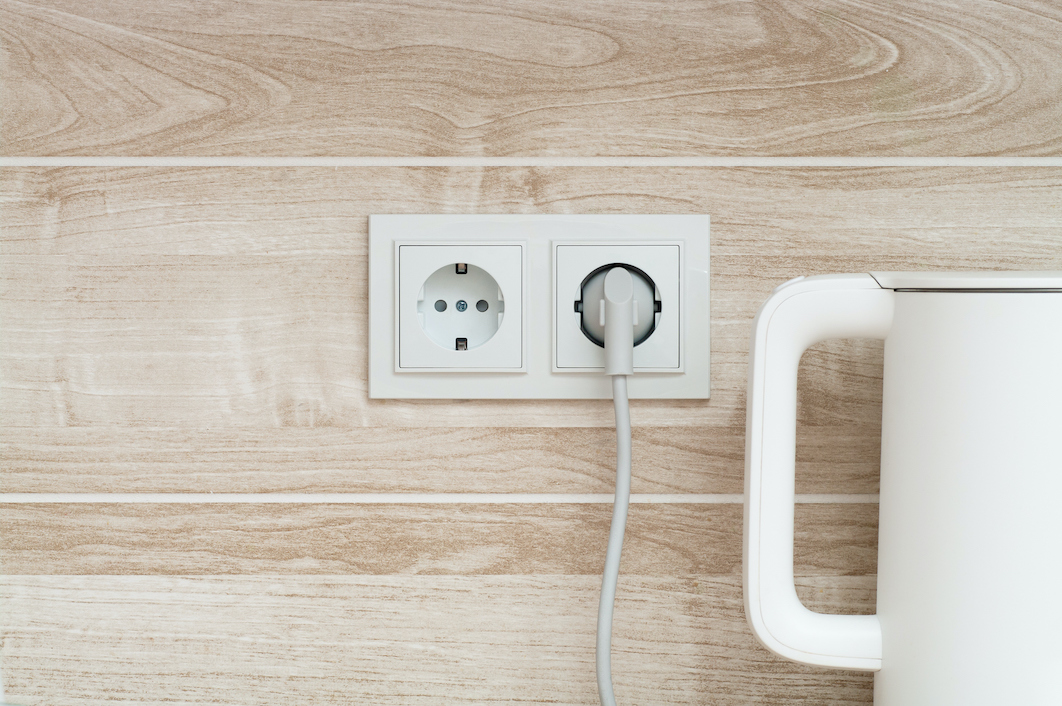


Tunisia has two plug types, C and E. The former has two round pins and the latter comprises two round pins with a hole for the male earthing pin. The country’s main supply is 230V and 50Hz. You may require a voltage converter or transformer in Tunisia. A different frequency can also affect the performance of an electrical appliance. These days most transformers and converters come with plug adaptors, so there is no need to buy a separate travel adaptor. However, if you are travelling to multiple countries, investing in a universal adapter that has surge protection is not a bad idea.
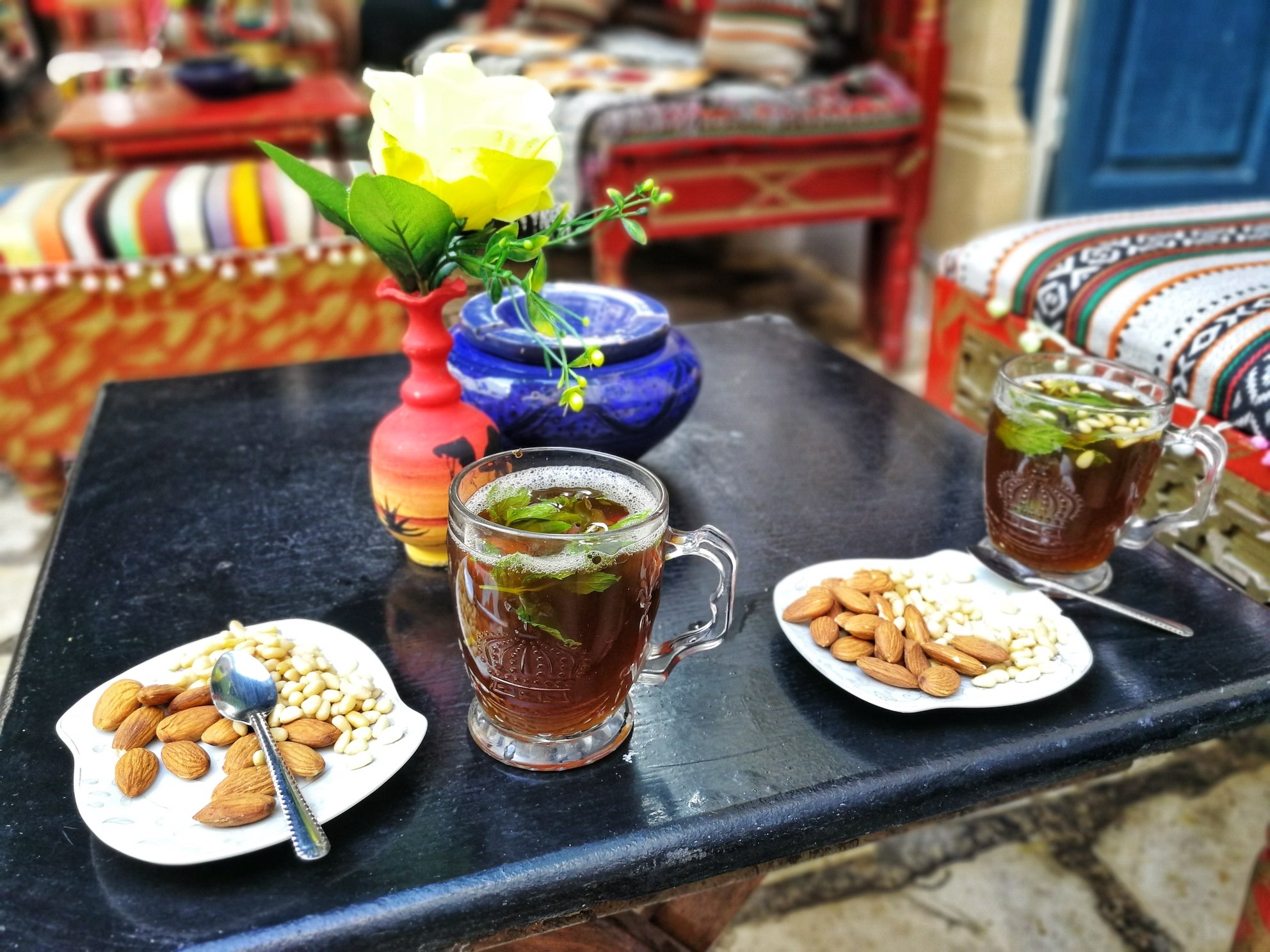


The core of Tunisian cuisine is arguably Mediterranean, with cereals, vegetables, legumes and meat forming the basic ingredients of many dishes. Spices and herbs are liberally sprinkled and olive oil is commonly used in Tunisia’s cuisine. Given Tunisia’s history, the gastronomical influences are varied: Arab, Andalusian, Berber, Jewish, Turkish. Couscous, the country’s wheat-based national dish, is usually served with fish, chicken, lamb or beef with plenty of veggies in the mix. Brik, a fried pastry with an egg filling which originated in Ottoman times, is a Tunisian classic. Shakshuka, a delicious vegetable stew of sorts, comes in many forms and is popular across the Middle East. Two Tunisian staples are the stew-like Lablabi, in which olive oil, cumin, lemon juice and harissa do their magic on the chickpeas; and Slata mechouia, a spicy grilled salad. Don’t miss the superb Poulet Meshi, which is roasted chicken served with onions and chickpeas.
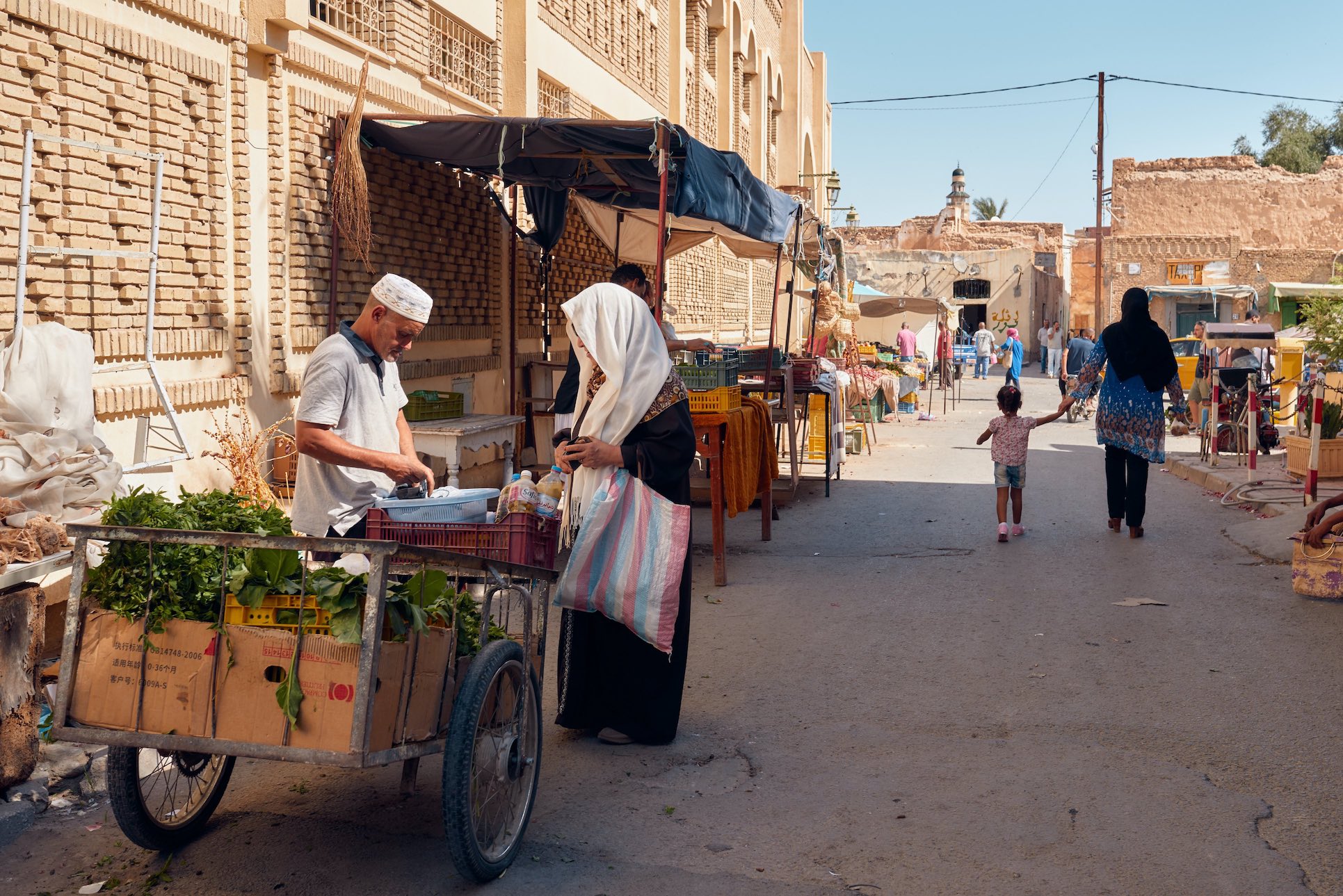


While dresses vary according to region, Tunisian women are known to wear the traditional kaftan on special occasions, an elaborate jewelled costume. Similarly, the male ceremonial wear includes a long tunic called the jebba and trousers known as sarouel. The clothes Tunisians wear on a day-to-day basis are often dictated by where they stay, with the norms in cities more relaxed and westernised. In rural areas, the conservative Islamic culture is more pronounced and hijabs and abayas are not uncommon. So keep these regional differences in mind while travelling in Tunisia. Showing less skin is generally a good idea, particularly if you’re a woman. Otherwise, comfortable, cotton clothes are a good bet. On beaches, people are used to European tourists and attitudes are more liberal.
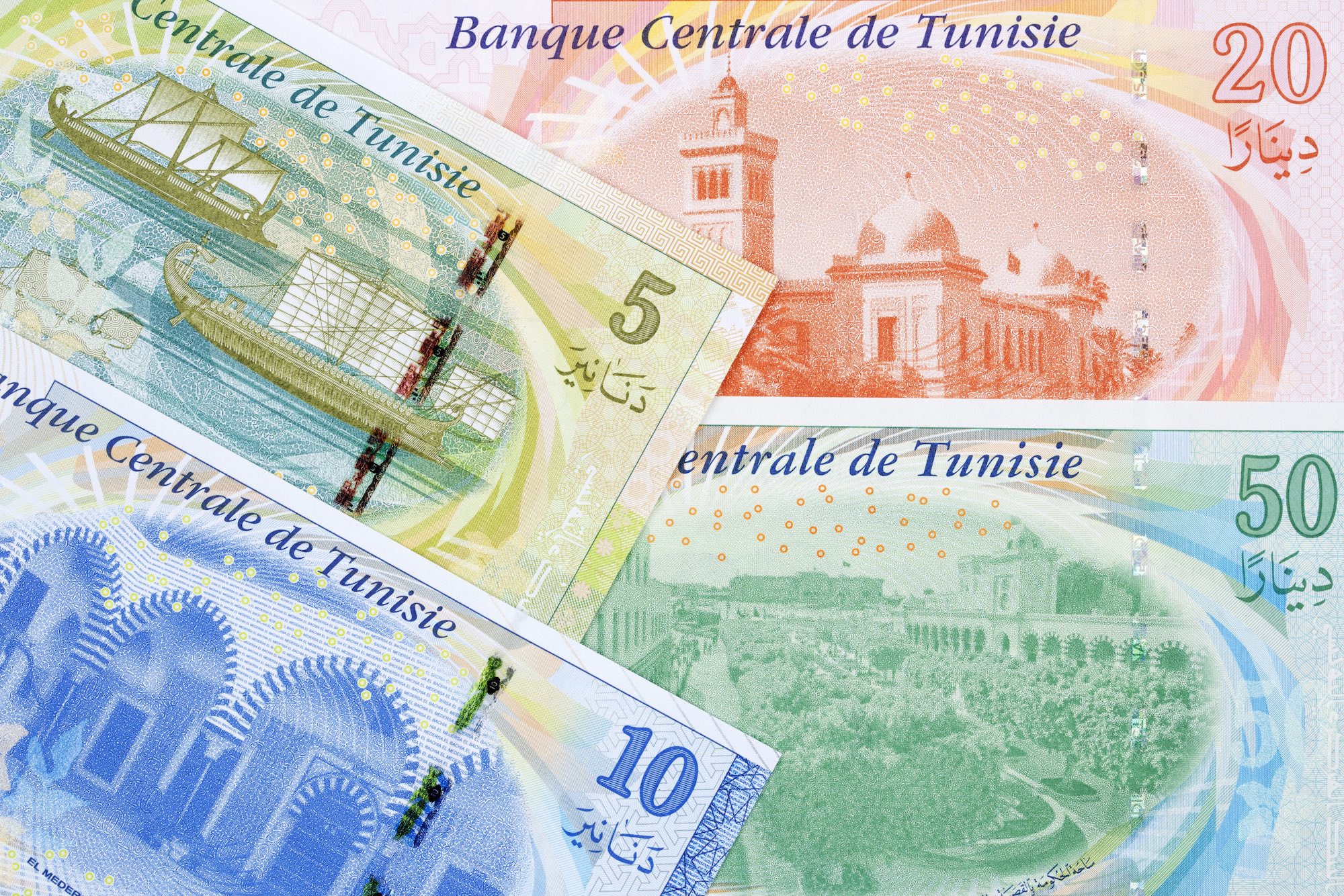


The Tunisian dinar (DT) is divided into 1000 mills. Exchange rates are fixed by the government, so you can neither export nor import the dinar nor trade it on the currency markets. Which means you will have to get all the local currency only after you arrive in Tunisia. If you find a shady place promising to exchange Tunisian dinars, don’t go down that road. It’s illegal to do so and can get you into trouble. Other currencies such as the UK pound, euro and US dollar are easily exchangeable within Tunisia. 1 pound sterling equals 3.86 DT and 1 USD is worth 0.37 DT. Again, you will have to check what the latest rates set by the government are, on arrival in Tunis. Most mid-sized cities and all tourist hubs in the country have ATMs. Credit cards are usually accepted by the more prominent establishments.
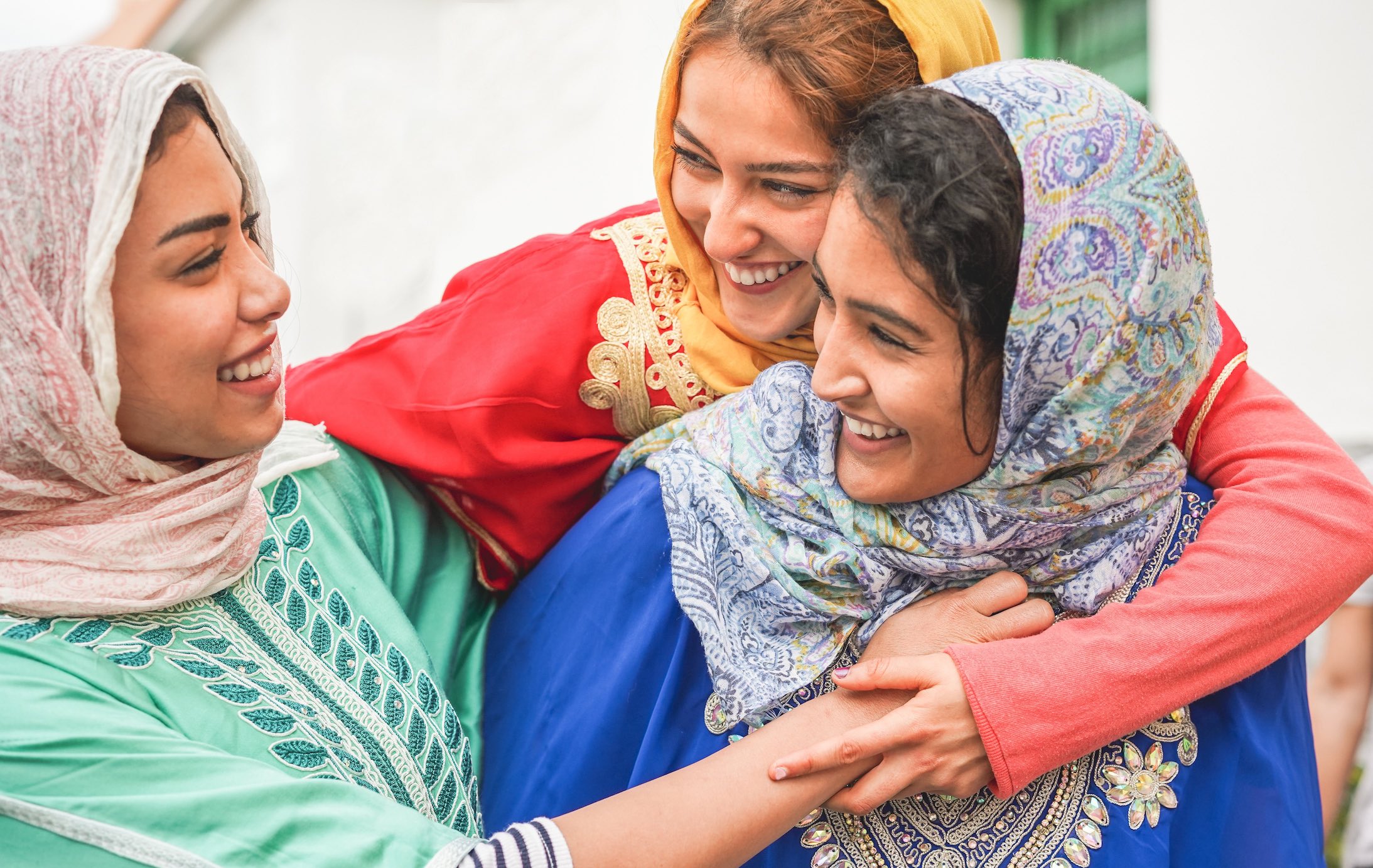


Tunisia’s official language is Arabic but the dialect, called Maghreb or Darija, is very different from the Arabic spoken in the Gulf. However, Tunisians are able to switch to the so-called standard Arabic, if required. Since Tunisia was a ‘protectorate’ of France till the 1950s, French is spoken and understood by most residents. More than half of the newspapers in Tunisia are in French and French is taught in schools. If you understand French, you will be able to navigate Tunisia without any interpreter. English is less understood by the general population, but people working in the tourist industry are usually familiar with English.
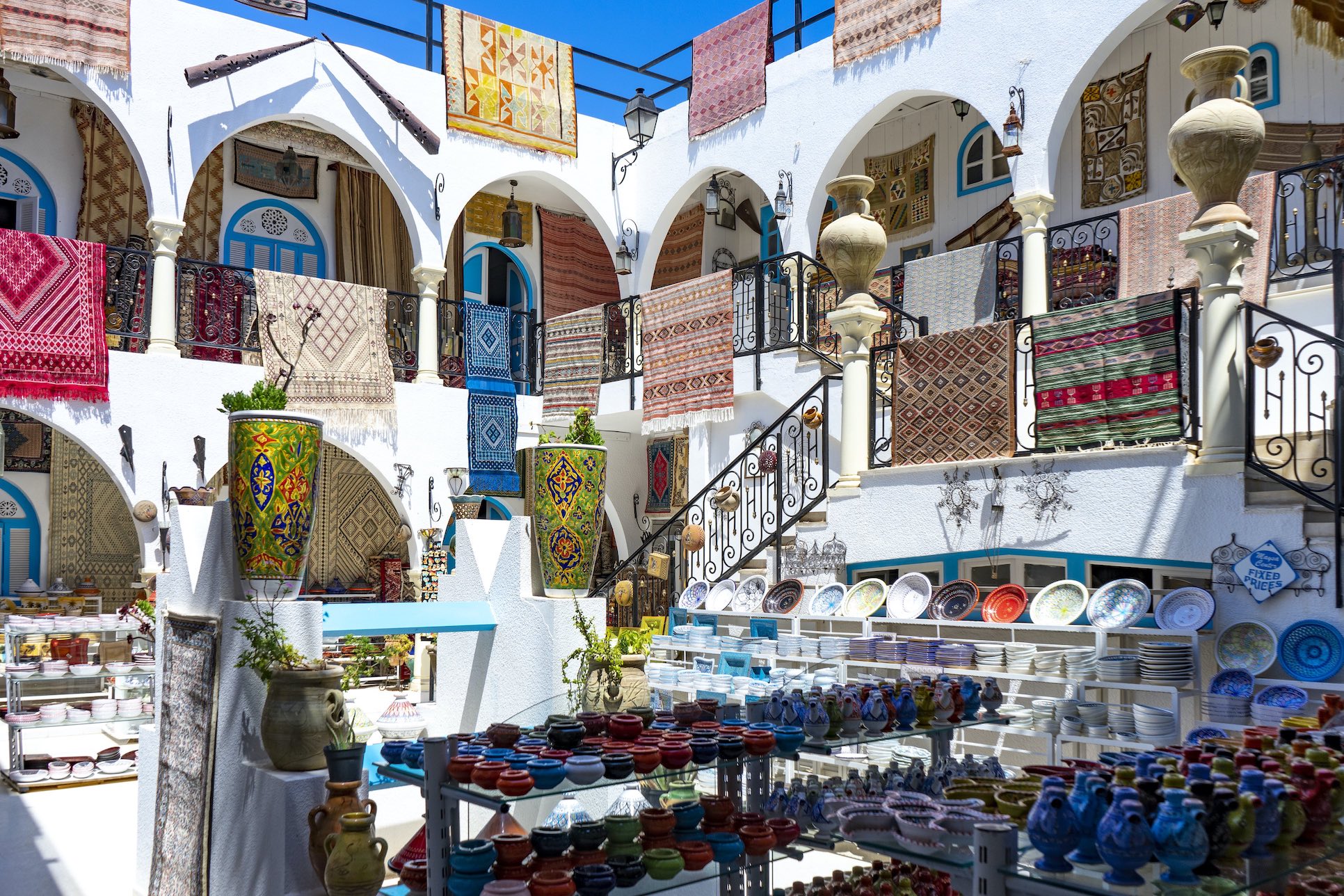


Tunisia is a 99 per cent Muslim country and you should be respectful of religious and social norms while travelling. The desert regions in the south are more traditional than the northern beaches. In general, Tunisia is among the more liberal countries in the region. But while Tunisians are curious about the world outside, they have a strong sense of their Islamic identity and cultural roots. If you are in a mixed-sex gathering, be aware that men and women may sit separately. As in most cultures in the region, always use your right hand to eat, if you’re not using a spoon, fork or knife. While purchasing antiquities, be careful about what you photograph and follow the local rules. Similarly, the law of the land must be strictly adhered to while carrying Tunisian currency. It is usually okay to bargain at most shops where prices are not fixed.
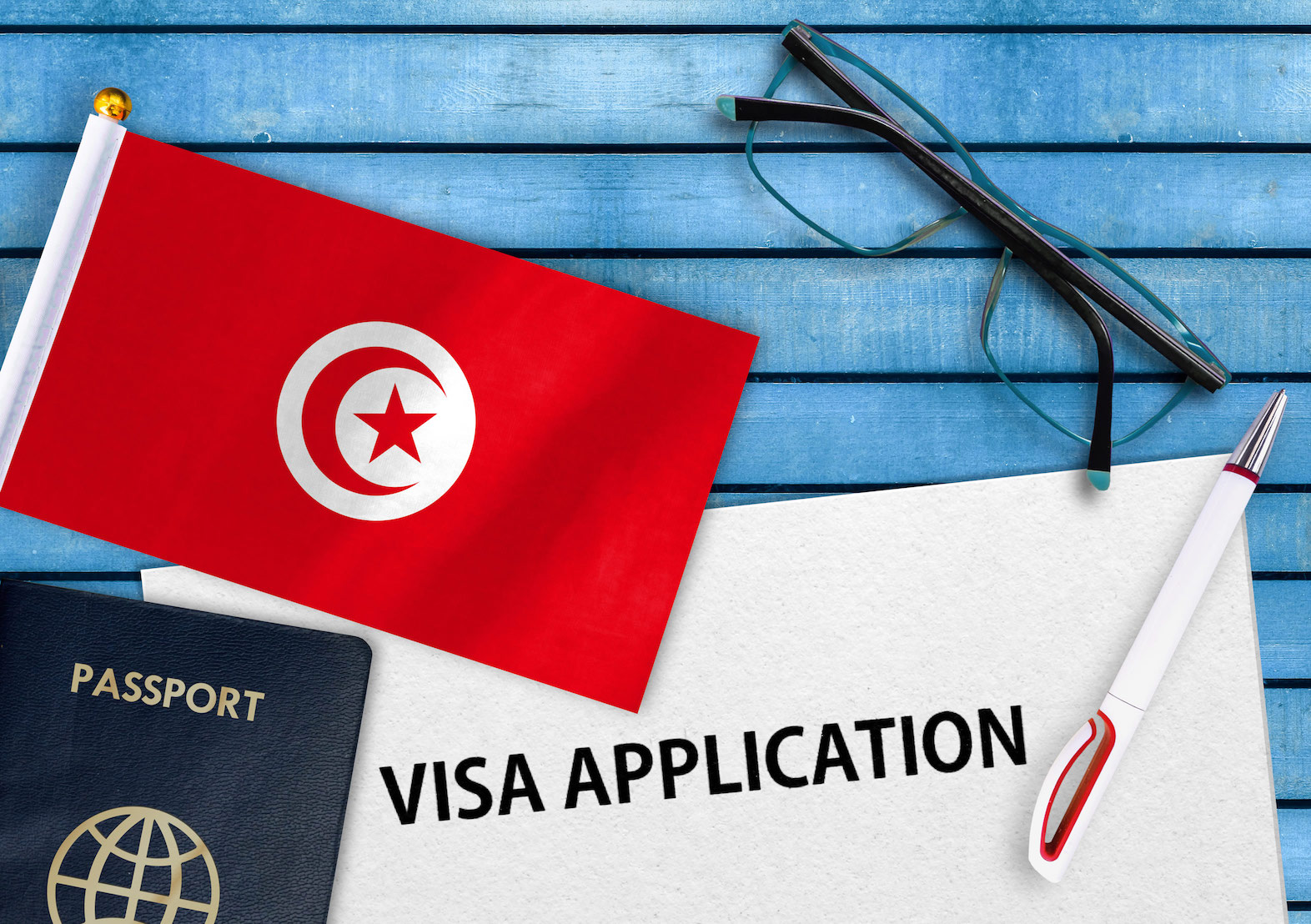


As a British passport holder, you don’t need a visa if you are visiting Tunisia for up to three months. However, security checks may be conducted on arrival on UK passport holders not born in Britain. These can take a few hours. If you happen to stay in Tunisia longer than the authorised limit, you are likely to be fined. Your passport is valid for the duration of your stay for up to three months. Beyond this, an extra period of validity is not required on your passport. If you are a dual British-Tunisian national, then you should enter and leave Tunisia on your Tunisian passport.



Located in the northernmost part of the African continent, Tunisia is bound by Algeria to its west, Libya to its southeast and the Mediterranean Sea to its north and northeast. It’s striking how close Tunisia is to the southern borders of Italy and Malta, which makes you think afresh about the proximity of Europe to North Africa and the cultural, economic and political links between the two continents dating back several millennia. For its size, Tunisia has a wide variety of landscapes. Besides the famous coastline, there are mountains in the north, the Sahara Desert with its sand dunes towards the south and the rocky plains in the centre which tend to be hot and dry.



Given its location, it’s not surprising that Tunisia has a Mediterranean climate — mild, wet winters and hot, dry summers. The south and central parts are hotter and rainfall is scanty. Wherever you are in Tunisia, you can soak in the sunshine and that includes the famed winter Mediterranean sun on the beach. The average winter temperature hovers around 17 degrees Celsius but summers on the coast are not too bad either. Sun-crazy tourists tend to flock to Tunisia’s beaches in the July-August period. Even on warmer days in the coastal towns, you can enjoy a cool sea breeze in the evenings. If you’re here for a desert safari, aim for the September-November and March-May months.



Tunisia has two plug types, C and E. The former has two round pins and the latter comprises two round pins with a hole for the male earthing pin. The country’s main supply is 230V and 50Hz. You may require a voltage converter or transformer in Tunisia. A different frequency can also affect the performance of an electrical appliance. These days most transformers and converters come with plug adaptors, so there is no need to buy a separate travel adaptor. However, if you are travelling to multiple countries, investing in a universal adapter that has surge protection is not a bad idea.



The core of Tunisian cuisine is arguably Mediterranean, with cereals, vegetables, legumes and meat forming the basic ingredients of many dishes. Spices and herbs are liberally sprinkled and olive oil is commonly used in Tunisia’s cuisine. Given Tunisia’s history, the gastronomical influences are varied: Arab, Andalusian, Berber, Jewish, Turkish. Couscous, the country’s wheat-based national dish, is usually served with fish, chicken, lamb or beef with plenty of veggies in the mix. Brik, a fried pastry with an egg filling which originated in Ottoman times, is a Tunisian classic. Shakshuka, a delicious vegetable stew of sorts, comes in many forms and is popular across the Middle East. Two Tunisian staples are the stew-like Lablabi, in which olive oil, cumin, lemon juice and harissa do their magic on the chickpeas; and Slata mechouia, a spicy grilled salad. Don’t miss the superb Poulet Meshi, which is roasted chicken served with onions and chickpeas.



While dresses vary according to region, Tunisian women are known to wear the traditional kaftan on special occasions, an elaborate jewelled costume. Similarly, the male ceremonial wear includes a long tunic called the jebba and trousers known as sarouel. The clothes Tunisians wear on a day-to-day basis are often dictated by where they stay, with the norms in cities more relaxed and westernised. In rural areas, the conservative Islamic culture is more pronounced and hijabs and abayas are not uncommon. So keep these regional differences in mind while travelling in Tunisia. Showing less skin is generally a good idea, particularly if you’re a woman. Otherwise, comfortable, cotton clothes are a good bet. On beaches, people are used to European tourists and attitudes are more liberal.



The Tunisian dinar (DT) is divided into 1000 mills. Exchange rates are fixed by the government, so you can neither export nor import the dinar nor trade it on the currency markets. Which means you will have to get all the local currency only after you arrive in Tunisia. If you find a shady place promising to exchange Tunisian dinars, don’t go down that road. It’s illegal to do so and can get you into trouble. Other currencies such as the UK pound, euro and US dollar are easily exchangeable within Tunisia. 1 pound sterling equals 3.86 DT and 1 USD is worth 0.37 DT. Again, you will have to check what the latest rates set by the government are, on arrival in Tunis. Most mid-sized cities and all tourist hubs in the country have ATMs. Credit cards are usually accepted by the more prominent establishments.



Tunisia’s official language is Arabic but the dialect, called Maghreb or Darija, is very different from the Arabic spoken in the Gulf. However, Tunisians are able to switch to the so-called standard Arabic, if required. Since Tunisia was a ‘protectorate’ of France till the 1950s, French is spoken and understood by most residents. More than half of the newspapers in Tunisia are in French and French is taught in schools. If you understand French, you will be able to navigate Tunisia without any interpreter. English is less understood by the general population, but people working in the tourist industry are usually familiar with English.



Tunisia is a 99 per cent Muslim country and you should be respectful of religious and social norms while travelling. The desert regions in the south are more traditional than the northern beaches. In general, Tunisia is among the more liberal countries in the region. But while Tunisians are curious about the world outside, they have a strong sense of their Islamic identity and cultural roots. If you are in a mixed-sex gathering, be aware that men and women may sit separately. As in most cultures in the region, always use your right hand to eat, if you’re not using a spoon, fork or knife. While purchasing antiquities, be careful about what you photograph and follow the local rules. Similarly, the law of the land must be strictly adhered to while carrying Tunisian currency. It is usually okay to bargain at most shops where prices are not fixed.



As a British passport holder, you don’t need a visa if you are visiting Tunisia for up to three months. However, security checks may be conducted on arrival on UK passport holders not born in Britain. These can take a few hours. If you happen to stay in Tunisia longer than the authorised limit, you are likely to be fined. Your passport is valid for the duration of your stay for up to three months. Beyond this, an extra period of validity is not required on your passport. If you are a dual British-Tunisian national, then you should enter and leave Tunisia on your Tunisian passport.
Travel related news, information and inspirational articles and videos for travellers booking flights or holidays to Tunisia. Ask questions about travel in Tunisia and get answers from Tunisia experts
NEWS
Inspiration, Information and Travel Guides
MEET THE Tunisia EXPERTS
If you are looking to book a holiday to Tunisia or needs some help and advice planning travel to Tunisia then contact one of the UK based independent travel agents that specialise in Tunisia itineraries.
FEATURED VIDEOS
Your Travel Questions Answered
Ask any travel related question and get an answer from one of our experts that will provide you with an answer from their personal experience
There is no question for this category.




